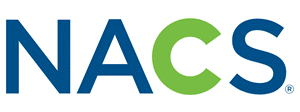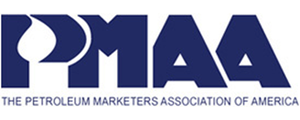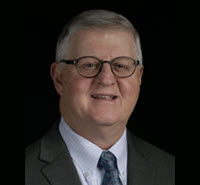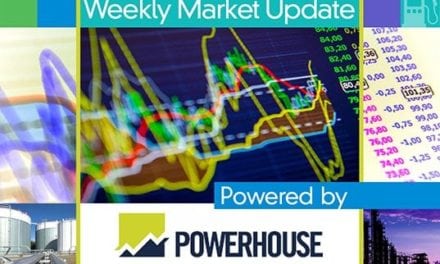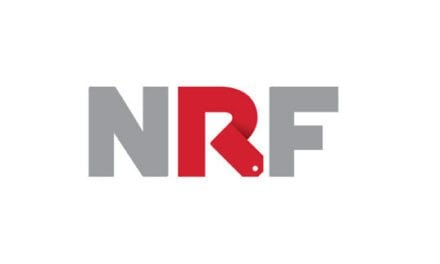By Keith Reid
Another year rolls around and maybe a new decade (depending on how you figure the math). The economy moving into the new year is strong and so appears the health of the industry. According to the final quarterly NACS Retailer Sentiment Survey for 2019: Three in four retailers (74%) said that in-store sales increased in 2019, compared to only 7% who said that sales slumped. And 62% say that their fuel gallons sold increased, compared to 25% who said that their fuel sales decreased.
As NACS noted, convenience stores sell nearly 80% of the fuel purchased in the United States and conduct an estimated 165 million transactions a day, making the industry a good indicator for trends related to travel and consumer spending.
While the industry continues the process of consolidation, the big companies still exist in a world dominated by smaller operators. And both ends of the industry are increasingly efficient in serving their local markets and are well served by technology.
Marketers and retailers have access to numerous technological solutions designed to help them increase profitability and operate more efficiently. Unlike some similar points in the past two decades (the B2B dot.com era of the early 2000s, for example) the solutions tend to be well developed and well-focused.
FMN asked the leaders of some of the major associations serving the industry for feedback on where the organizations are headed in 2020.
NACS, the global association for convenience and fuel retailing (www.convenience.org), advances the role of convenience stores as positive economic, social and philanthropic contributors to the communities they serve. NACS has 1,900 retailer and 1,800 supplier members from more than 50 countries.
FMN: What is the state of the industry as the New Year begins? What are the major challenges ahead for the industry? What are the major opportunities ahead for the industry?
Henry Armour: The value of convenience continues to grow in importance and that presents both challenges and opportunities. The challenges are obvious: There is much more competition for the convenience customer, whether providing traditional convenience defined by brick-and-mortar retail or by internet-enabled ordering and delivery. But the opportunities are even greater as our industry continues to provide an unmatched convenience experience plus add new convenience offers that continue to push the boundary on what consumers expect.
The numbers bear out our continued success. Our industry’s in-store sales number continue to set new records, and we are an important part of 165 million Americans’ daily rituals.
But what’s even more impressive is that consumers see us as offering much more than convenience; they see us as community partners who collect or contribute more than $1 billion annually to charitable causes and provide 2.5 million jobs. Those are some of the reasons why 86% of Americans say that convenience stores are good neighbors
FMN: What are the regulatory and legislative issues the association likely will be focused on in 2020?
Armour: We don’t expect too much to change in Congress from 2019 to 2020. Overall, the agenda has been set for 2020, and Congress will spend the year trying to get things over the goal line. In this climate, one of NACS’ top priorities will be to push for final enactment of the Electronic Cigarette PACT Act, which would regulate the internet sale of e-cigarettes the same as regular cigarettes.
On the surface, Congress will be consumed with high-profile objectives that include funding the government, impeachment and campaigns for the 2020 election. But NACS also will continue to work behind the scenes and communicate the industry’s voice on Capitol Hill on a variety of issues that could gain traction in 2021 and beyond.
The majority of federal activity will be in the regulatory agencies, as the uncertainty over who will win the Presidential election will inspire final actions on a number of issues. Specifically, expect to see an especially active Department of Labor, which will likely engage on further clarifying updates to the Fair Labor Standards Act. These updates could include regulations around tip income and how lodging and other benefits are included in wage calculations, as well as possible changes to the Family and Medical Leave Act (FMLA).
FMN: Are there any new, enhanced or expanded member benefit initiatives planned for 2020?
Armour: We constantly seek to reinvent our membership offer as our industry evolves. As foodservice continues to grow, we are focusing on how to grow the category and how to maximize food safety. We are developing new tools and reports to help retailers continue to own mobility, whether that means selling traditional fuels or providing new fueling – or charging – options. And we are building our new tools to help retailers prepare for and recover from natural disasters in the communities. And, all of these new tools and initiatives are being developed with an eye toward customization, knowing that retailer needs around the world – or even within the same city – are often much different.
FMN: Why should someone join NACS?
Armour: NACS membership is invaluable if you want to grow your business. We harvest and share ideas and best practices from around the world and make them actionable in your neighborhood. We bring together thought leaders and experts to give you insights to best manage the challenge you are facing today – and could face in a few years. And we give you a voice – both in connecting with fellow members and in our outreach to the media and elected leaders.
The Petroleum Marketers Association of America represents petroleum marketers engaged in the transport, storage and sale of petroleum products including gasoline, diesel fuels, kerosene, jet fuel, aviation gasoline, propane, racing fuel, lubricating oils and home heating oil and other petroleum products. PMAA members are the primary conduit for bringing petroleum products from the terminal rack to retail locations and represent a vital, indispensable link in the nation’s petroleum distribution chain. PMAA companies also own 60,000 retail fuel outlets such as gas stations, convenience stores and truck stops. Additionally, these companies supply heating oil to over 6 million homes and businesses.
FMN: What is the state of the industry going into 2020, and what are the regulatory and legislative issues the association likely will be focused on this year?
Rob Underwood: The state of the industry is strong going into the New Year, but petroleum marketers need to remain vigilant to continue our success.
Before Congress and the President left town for the holidays, they delivered an end of the year government spending/tax extenders package. Over 50 tax incentives were reauthorized including a PMAA supported five-year retroactive extension of the $1 per gallon biodiesel blender’s tax credit as well as a three year prospective renewal of the oil spill liability tax (OSLT). PMAA also prevented an expansion of the EV tax credit in the tax extenders bill which was a major victory for petroleum marketers. The EV credit only benefits a few companies who have already hit their EV targets as well as individuals making over $100,000 per year.
Meanwhile, PMAA anxiously awaits the Federal Motor Carrier Safety Administration’s (FMCSA) final rule that would extend the hours of service (HOS) 100-mile radius short haul driver exception to 150 miles. More importantly, the HOS final rule is expected to exempt CDL drivers from the electronic logging device (ELD) mandate if they stay within 150 air miles in early 2020. PMAA also urged EPA to issue a guidance document confirming that pipe dope needs to be fully compatible with E10 plus blends. EPA responded with a statement indicating that much of the existing pipe dope on the market is not compatible with E15 which strengthens PMAA’s argument that E15 is not ready for primetime. RFS reform will continue to dominate the headlines in 2020.
PMAA sees an opportunity to work with Congress to promote research into creating better liquid fuels for our industry. Using our existing infrastructure and vehicles, we can deliver products that meet the demands of our society for affordable, efficient, and environmentally friendly fuels. Those products may include renewable diesel, renewable gasoline and higher-octane gasoline. On the heating fuels front, PMAA will be on the lookout for a legislative vehicle to permanently reauthorize the National Oilheat Research Alliance (NORA). NORA is currently conducting research to achieve a 100% low carbon liquid fuel (LCLF) on a commercial scale and advancing heating technologies including LCLF heat pumps focusing on efficiency and zero net carbon. PMAA and its state and regional associations played the lead role in reauthorizing NORA in 2014 and again in 2019 for ten years.
FMN: How are you looking to enhance value for the state associations in 2020?
Underwood: Disaster response efforts will continue to be a PMAA top priority in 2020. PMAA is working with the states to bring consistencies in processes among local, state and federal government agencies. Additionally, a federal and state waiver database is in final development which will provide the fastest possible updates during emergencies. PMAA is also planning to develop a crowd sourced online tool to help drivers maximize their hours of service. This will help drivers know whether to head in one direction or another in order to avoid long wait times at terminals. PMAA will have more information in the new year!
The Petroleum Equipment Institute is a trade association whose members manufacture, distribute and service petroleum marketing and liquid handling equipment. Founded in 1951, PEI represents more than 1,600 member companies in all 50 states and more than 80 countries. Members include manufacturers, sellers and installers of equipment used in service stations, terminals, bulk plants, fuel, oil and gasoline delivery, and similar petroleum marketing operations.
FMN: What is the state of the industry as the New Year begins? What are the major challenges ahead for the industry? What are the major opportunities ahead for the industry?
Rick Long: To paraphrase Charles Dickens, this is the “best of times” for PEI members, thanks to the convergence of three major drivers:
- EMV payment system upgrades in advance of the October 2020 liability shift deadline.
- Ongoing testing, compliance, repair and upgrade work in response to recent underground storage tank (UST) regulations.
- A growing need for UST replacements, as these tanks reach the end of their warranties.
But nothing lasts forever. Forward-thinking PEI members are asking “what’s next” and positioning their businesses for the future. In the last year, for example, the number of distributors and contractors installing electric vehicle charging stations more than doubled to 7.9%. Another 31.9% of our members say they plan to enter the EV market. Installation and service of car washes and backup power systems for data centers also spell great opportunity.
FMN: Speaking of the EMV upgrades, what is the outlook for installs by the 2020 deadline?
Long: EMV upgrade work is busy right now—but it ought to be even busier. According to PEI’s most recent survey—conducted one year out from the Oct. 2020 EMV deadline—our members expect only 59.3% of fuel retailers to have completed their payment system upgrades by the deadline. Even more troublingly, our members project that 21% of their customers have no intention of upgrading at all.
Depending on the market, order-to-completion lead times vary from a few weeks to a few months right now. But retailers would be smart to get in the queue as quickly as possible. Equipment and service costs won’t come down as the year progresses; and those lead times will only increase.
The upgrade process is particularly complicated and time-consuming for large, multi-store operations. These retailers must first conduct a store-by-store survey of their dispenser payment configurations. A PEI service partner will use that data to present recommendations and options. Which sites can make do with relatively inexpensive EMV upgrade kits? Which sites will require new dispensers? Which sites are the highest priority in light of fuel volumes and other competitive factors? All those questions must be answered to develop a realistic budget, order equipment and schedule the work.
For single-store and other smaller marketers, the process is simpler—but the need to get in the queue is just as real. If a contractor already has scheduled hundreds or thousands of dispenser upgrades and replacements, it could take months before even a “simple” new order can be completed.
FMN: What are the regulatory and legislative issues the institute likely will be focused on in 2020?
Long: PEI isn’t a lobbying organization, but we monitor, analyze and report on relevant regulatory and legal developments. Regulators also often reach out to us for authoritative and objective advice on unanswered questions. In the coming year, the applicability of state fire and electric codes to mobile fueling will be one hot topic. Equipment compatibility concerns for E15 and other alternative fuels also will continue to be front and center. Through our participation in the National Association of Wholesaler-Distributors and the National Association of Manufacturers, PEI also will be watching for business and tax developments that could affect our members’ bottom lines for better or worse.
FMN: Are there any new, enhanced or expanded member benefit initiatives planned for 2020?
Long: PEI’s recommended practices are among the association’s greatest contributions to the industry. Over the next year or so, documents dealing with lube systems, bulk storage facilities, marina fueling systems, diesel exhaust fluid, aviation fueling systems and emergency generators all will be updated. And a new recommended practice on LNG fueling systems will bring safe and practical practices to owners and operators working in that realm.
Perhaps the most exciting development in the coming year will be the build-out of our Latin America program. Although PEI boasts members in about 80 countries, this is the first time the association has focused on delivering specific offerings for a region outside of the United States. The effort is guided by a three-part mission: “Build value. Build the brand. Build memberships.”
FMN: Why should someone join PEI?
Long: Whether you are a manufacturer, a distributor, a service contractor, a testing and inspection firm or some other stakeholder, PEI brings you the information, contacts and perspective you need to succeed in the complicated world of fuel and fluid-handling equipment.
Our publications encourage safe and environmentally friendly installation and maintenance practices. Our events bring diverse stakeholders together for the common good. And our strong and respected voice ensures that your interests are represented before key regulatory bodies.



